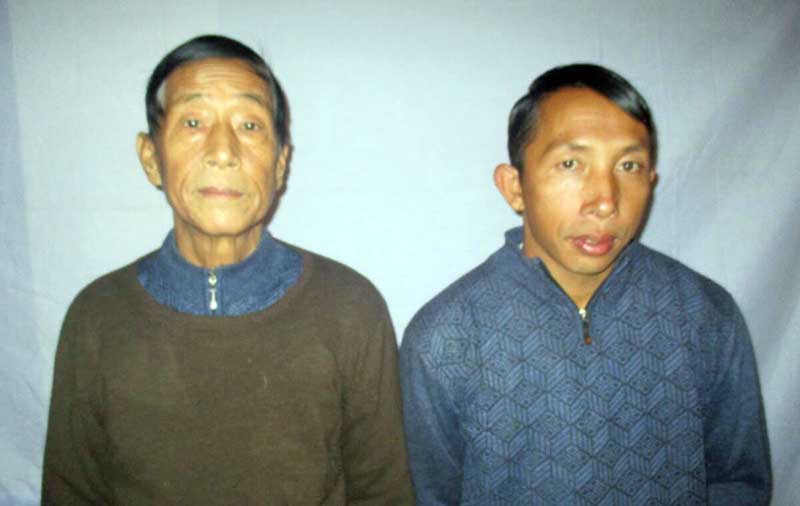Thirty-six political prisoners were among a total of 8,490 inmates released yesterday from jails across the country as a traditional gesture of amnesty by the president to mark Burma’s New Year.
Among the 36 prisoners of conscience who were released were two Kachin pastors, DD Nawng Lat and Mangjaw Gam Seng, who were accused of recruiting for rebel groups and convicted last year of “unlawful association”. They had been handed four-year and two-year sentences, respectively.
Bang Dee, a lawyer for the Christian pastors, told DVB yesterday April that the two were “in good health.”
Also released in the amnesty were Nanda Thara, a Buddhist abbot from Mrauk-U, and Khine Ni Min, who were detained in April 2017 and charged under the Unlawful Association Act after they had organised a football tournament dubbed the “Arakan Army Cup”. The Arakan Army had at the time been involved in clashes against Burmese government forces and the tournament was alleged to have been staged in support of the rebels.
Reuters journalists Wa Lone and Kyaw Soe Oo, who are on trial for allegedly violating the Official Secrets Act, were not listed for release in the president’s amnesty.
The President’s Office said that a total of 8,490 prisoners were unconditionally pardoned – 6,362 of whom had been incarcerated for drugs offences – noting that they will henceforth not be subject to the conditions under Article 401 (1) of the Code of Criminal Procedure, which allows for amnestied prisoners to be re-arrested and made to serve the remainder of their sentences.
In a message to the nation yesterday, Burma’s President Win Myint, who took power last month following the sudden resignation of Htin Kyaw, said that the amnesty for prisoners was an offering “to celebrate Burmese New Year, instill peace in citizens’ minds, and was taken in due regard for [the principles of] humanitarianism.”
Fifty-one foreigners were included in the presidential pardon. Each will be deported without being subject to re-arrest.
Speaking to DVB on Tuesday morning, Bo Kyi, the secretary of the Assistance Association for Political Prisoners (AAPP), said he welcomed the presidential amnesty, but urged the Aung San Suu Kyi-led government to consider releasing more prisoners of conscience.
“Thirty-six persons are to be released. This is good,” he said. “But the government needs to release more political prisoners as well as those being detained while awaiting trial.”
According to the AAPP, 74 persons are listed as political detainees awaiting trial, including the two Reuters journalists who were arrested for allegedly handling sensitive information relevant to a military operation against Rohingya insurgents.
Bo Kyi said another 120 persons await trial due to their political activities, though they are not detained behind bars.
The Myanmar National Human Rights Commission advised the government in January that there were not enough cells to accommodate all the prisoners in Burma, and that those convicted for minor drugs offences should be let free.
Speaking yesterday in the wake of the amnesty, MNHRC member Yu Lwin Aung said, “We appreciate the government heeding our advice and releasing those prisoners who were jailed for minor drugs crimes.”
In addition to the presidential amnesty, 2,020 members of Burma’s military and police force, who were sentenced under the Military Act and Police Disciplinary Act, were also released on Tuesday.
[related]
Under the ruling NLD government, which took power in 2016, there have now been four presidential amnesties. A total of 10,977 prisoners, including 235 political prisoners and 124 foreigners, have been given presidential pardons.
US-based watchdog Human Rights Watch this morning called on the Burmese government to “reform or repeal the many overbroad and vaguely worded laws” that have been used to silence activists, journalists, and those simply exercising their rights to peaceful expression.
“The yearly ritual of pardons is no substitute for reform, nor does it absolve the NLD of its responsibility to end these injustices once and for all,” it said.



